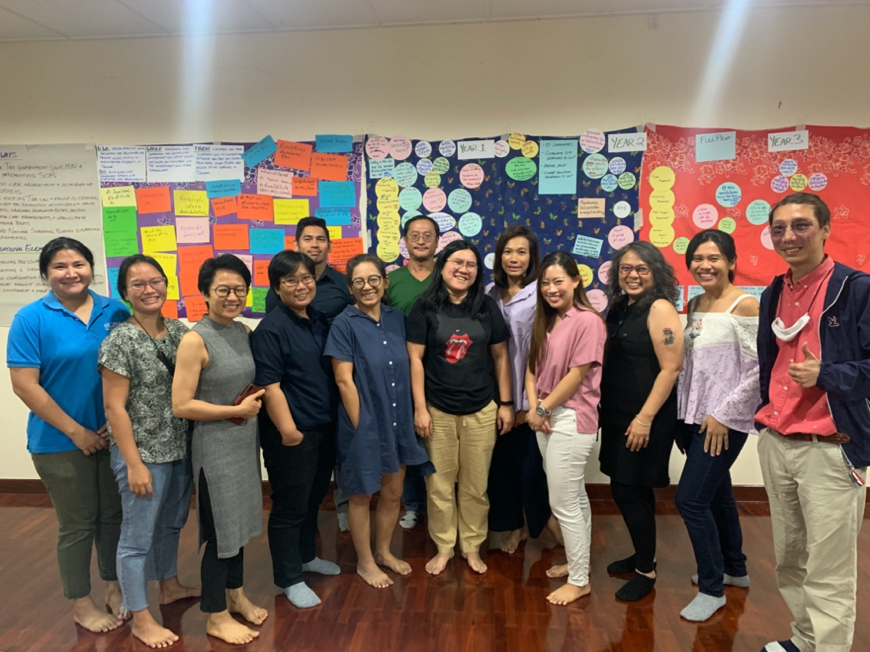IDC has supported national coalitions in Thailand (the Coalition for the Rights of Refugees and Stateless Persons – CRSP), and Malaysia (the End Child Detention Network – ECDN) to come together to revisit their respective Theories of Change (TOC) and national strategies to end child immigration detention developed in 2018.
These shared visions and cohesive strategies have guided civil society in Thailand and Malaysia to work on advocating for changes in immigration policies in the past two years; for example, the Thai Memorandum of Understanding on the Determination of Measures and Approaches Alternative to Detention of Children in Immigration Detention Centers and the National Screening Mechanism for refugees.
To support members in revisiting and updating their ToC and national strategies to reflect the significant changes that have taken place at the national, regional and global levels, IDC convened a national strategy workshop for the CRSP network on 24 and 25 September, and for ECDN on 1 October.

Through these national strategy meetings, participants came together to take stock of their achievements from the past two years. In Thailand, CRSP updated their 2018 ToC and national strategy, and developed their annual workplan along with a monitoring mechanism to ensure the strategy’s effective implementation. They also agreed upon how they will coordinate to achieve their goals together. CRSP aims that by 2023 Thailand will prohibit the immigration detention of all children and their caregivers in both practice and law, while at the same time ensuring that community-based alternatives to detention are available for them. Through this common vision, the Thai network will work with all national and international stakeholders to support the government to achieve the necessary changes in perceptions, practices, and legislation towards human-rights and child-rights based ATD. They will also strengthen a holistic case management system and pilot a community-based ATD system that the government allocates resources to the system.
In Malaysia, participants had the opportunity to onboard new network members, and discuss new goals for the network. Following the meeting, a working committee of ECDN members have continued to convene to develop a workplan along with a monitoring mechanism.
For several years now, the IDC has seen our members and partners in Malaysia and Thailand engaged in advocacy and service provision for children impacted by immigration detention. With support from IDC, network members in both countries have become increasingly confident in advocating for ATD. These new, updated strategies will support them in prioritising and coordinating efforts towards the ultimate goal of ending the immigration detention of children and their families in both countries.